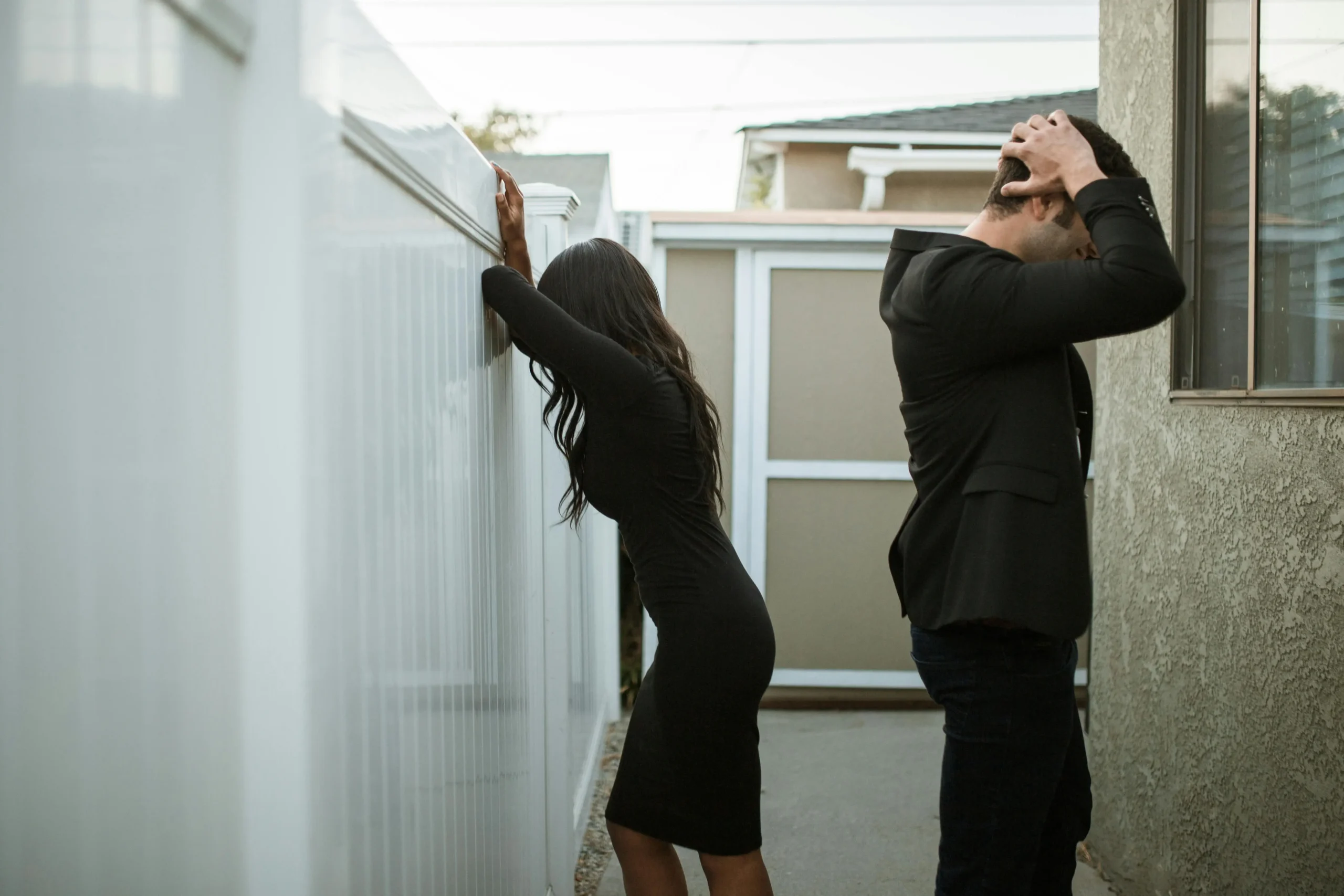Introduction – Are Relationships Worth It?
Let’s be honest—how many of us have asked ourselves in the quiet moments, “Are relationships worth it?” I know I have. It’s a question that echoes louder in a world where independence is prized, careers are demanding, and emotional bandwidth feels more limited than ever. With dating apps replacing real-life encounters and ghosting happening more than actual connections, it’s no surprise that many people are wondering if putting effort into love is even worth it anymore.
Cultural shifts are redefining what fulfillment looks like. More people today are prioritizing self-care, mental health, and personal goals over traditional milestones like marriage or long-term commitment. Emotional labor—once expected without question—is now being called out and challenged. So, are relationships outdated… or simply misunderstood?
In this blog, I’ll walk you through both the beauty and the baggage of relationships. We’ll explore what science has to say, unpack real emotional benefits and costs, and most importantly, reflect on whether you feel relationships align with your values, timing, and life goals. So if you’ve ever felt conflicted, skeptical, or hopeful about love—this one’s for you.
What the Research Says – Are Relationships Worth It?
A. Emotional Support as a Psychological Anchor
Let’s start with what we all crave but rarely talk about: emotional support. When you’re navigating the chaos of daily life—whether it’s work stress or personal setbacks—having someone there who genuinely gets you can be a game changer. According to the American Psychological Association, romantic relationships often function as “stress buffers,” reducing the emotional impact of negative events and increasing resilience in tough times.
It’s not just based on personal stories. Studies show that individuals in supportive relationships experience less anxiety and report significantly lower rates of loneliness. Emotional connection with a partner can release oxytocin—the bonding hormone—which lowers cortisol levels, making us feel safer and calmer.
So if you’re asking, “Are relationships worth it?”—and your mental health is struggling—the answer might very well be yes, at least when the relationship is healthy and reciprocal. After all, emotional resilience isn’t built in isolation.
B. Happiness and Long-Term Well-Being
Let’s talk about real joy—not the kind you post on Instagram, but the kind that quietly fills you up during a shared meal, a warm hug, or a look that says everything across the room. Research from Harvard’s 80-year-long Grant Study—the most extensive longitudinal study on human happiness—shows that close relationships, more than money or fame, are what keep people happy throughout their lives. Those who reported the strongest ties to family, friends, or romantic partners were also the healthiest, both physically and mentally. Harvard Gazette
Of course, it’s not just about being in any relationship, but being in the right one. Healthy romantic partnerships provide a daily dose of emotional regulation, shared experiences, and a sense of purpose. This consistent connection is linked to decreased risks of depression and even cognitive decline.
So if you’re reflecting on how to identify emotional triggers in a relationship, or wondering if companionship can make up for life’s tough moments, the research tends to favor love—when it’s healthy and well-balanced.
C. Relationships as Catalysts for Self-Development
Let me get personal here. Some of the biggest leaps in my own emotional growth didn’t come from books, therapy, or workshops—but from relationships. Why? Because being deeply connected to someone else inevitably forces you to confront your blind spots.
Healthy relationships challenge us. They require vulnerability, communication, and emotional maturity. You learn to empathize with a perspective different from your own, take accountability for your actions, and grow from the messiness of conflict. In fact, managing emotional triggers in romantic relationships is one of the most powerful growth experiences available to us.
Even fights—when handled constructively—can become mirrors reflecting where healing is needed. You become more self-aware, more compassionate, and more capable of showing up fully not just in love, but in life.
So yes, personal growth is uncomfortable. But if you’re asking, “Are relationships worth it?”, ask yourself this too: Am I ready to grow into a better version of myself with someone who challenges me lovingly?
D. The Link Between Love and Longevity
Now here’s a twist—love might actually help you live longer. Multiple studies show that people in committed relationships (especially marriages marked by mutual respect) tend to enjoy better physical health, lower risk of cardiovascular disease, and even longer lifespans. Researchers believe this has a lot to do with the daily health habits that relationships encourage—like regular meals, doctor visits, and reduced risky behavior.
There’s also the calming effect of companionship. Chronic stress is a silent killer, and emotional support can quite literally help your body stay regulated. According to a meta-analysis published in PLOS Medicine, strong social ties can improve survival by 50%, rivaling the health benefits of quitting smoking.
So, the next time someone says love is a waste of time, you can say it’s practically a wellness strategy.
E. Communication Upgrades for Life
Let’s face it—modern communication is a mess. Between texting, subtweeting, and the fear of being “too much,” we’re often terrible at expressing ourselves. Relationships, when approached with emotional intelligence, force us to up our communication game.
You learn how to navigate difficult conversations without blowing up or shutting down. You learn active listening, where you actually hear what the other person is saying instead of planning your next retort. And over time, this bleeds into other areas of life—whether it’s work, friendships, or family dynamics.
Challenges and Hidden Costs – Are Relationships Worth It?
Now, let’s not sugarcoat things. If you’re asking “are relationships worth it?” you also deserve to hear the flip side—because love, as beautiful as it is, isn’t always soft and sparkly. Sometimes, it’s tough, draining, and full of emotional curveballs.
A. The Weight of Emotional Vulnerability
Being in a relationship means opening up—really opening up. And that’s scary. Trust doesn’t come easy for everyone, especially if you’ve been hurt before. Emotional vulnerability can feel like walking around without armor. You risk being misunderstood, rejected, or worse, betrayed.
Many relationships require constant emotional labor—checking in, soothing tensions, managing moods. And let’s be honest, that can be exhausting. The fear of loss, the anxiety around being “too much” or “not enough,” can eat away at your peace.
For anyone managing emotional triggers in romantic relationships, vulnerability can feel like walking on eggshells. That’s why it’s crucial to know your emotional limits and choose a partner who respects them.
B. Erosion of Personal Space and Autonomy
Another hidden cost? Losing a sense of you. I’ve seen it happen—you fall in love, and suddenly, your weekends, hobbies, even sleep schedule start revolving around someone else. While merging lives sounds romantic, it can quietly blur your identity if you’re not careful.
This is where interdependence versus codependency becomes a real battle. It’s beautiful to build a life together—but not at the cost of losing yourself. In fact, many people today are learning how to identify emotional triggers in a relationship that stem from feeling controlled or boxed in.
Healthy love should add to your life, not replace it. If you’re sacrificing too much of your autonomy, it’s fair to question: are relationships worth it for me right now?
C. Time, Energy, and the Invisible Costs
Let’s talk about something no one really tells you—relationships take a lot of time and energy. You’re not just texting cute memes and planning date nights; you’re managing another human’s needs alongside your own.
You compromise, make sacrifices, rearrange your life. And if both people aren’t doing this equally, it creates imbalance and resentment. This is how relationship burnout begins—when you’re constantly giving but not getting the support you need.
In long-distance relationships, especially, managing emotional triggers and staying emotionally connected demands even more intentionality. That invisible emotional toll can make even the strongest love feel heavy over time.
So again, if you’re weighing the cost-benefit equation and wondering are relationships worth it, don’t forget to factor in your bandwidth.
D. Recurring Conflicts and Misunderstandings
No relationship is argument-free. But when the same fights keep coming back like a bad Netflix reboot, it’s a red flag. Recurring conflicts usually point to deeper issues—like misaligned values, unmet emotional needs, or poor communication patterns.
Communication breakdown is one of the biggest causes of relationship conflict. You say one thing, they hear another. Suddenly, it’s a battle of egos instead of a partnership built on understanding.
Therapy techniques for emotional triggers in couples counseling often focus on decoding these conflicts. But if you’re not both willing to learn and adapt, even the best advice won’t save the connection.
So before you get swept away by romance, ask: Are we really aligned—or just in love with the idea of each other?
E. Toxic Dynamics and Psychological Damage
This is where things get heavy. Some relationships aren’t just challenging—they’re harmful. Emotional manipulation, constant criticism, or even abuse can leave long-term scars. It’s not just your heart that suffers, but your mental health, your self-esteem, your sense of safety.
If a relationship regularly triggers anxiety, self-doubt, or fear, it’s time to look closely at what it’s really costing you. Healing from emotional triggers in past relationships often starts with recognizing the signs that something wasn’t healthy in the first place.
In these cases, the answer to are relationships worth it? might be a very clear and necessary no—at least until you’ve healed and built a solid foundation within yourself.

When Are Relationships Not Worth It?
Let’s be real—there are times when love isn’t enough. Sometimes, despite the connection or the chemistry, the timing just isn’t right—or the relationship itself is more harmful than healing. If you’ve ever found yourself asking, “Are relationships worth it?”, it’s often a signal to pause and reflect.
A. Healing First: The Importance of Emotional Readiness
After a breakup, trauma, or any emotional upheaval, jumping into a new relationship might seem like a good distraction. But here’s the truth: unresolved pain tends to resurface—often in the form of anxiety, triggers, or unhealthy attachment patterns.
In my own experience, healing from emotional triggers in past relationships taught me that solitude isn’t loneliness—it’s restoration. Sometimes, choosing yourself first is the most loving thing you can do.
If your nervous system is still in survival mode, or if your identity feels shaken, being in a relationship can feel more like a pressure cooker than a safe haven. Emotional readiness matters. Otherwise, love becomes another burden rather than a place to breathe.
B. Recognizing Toxic Cycles
Relationships should evolve. If you’re stuck in a loop of arguing, apologizing, then repeating the same pain, that’s not growth—it’s stagnation. Toxic cycles don’t just drain your energy; they can chip away at your self-worth, piece by piece.
I’ve spoken to friends who stayed in relationships way past their expiration date, hoping things would magically improve. But if you’re always the one doing the emotional labor or if mutual respect is missing, it’s time to ask the hard question: Are relationships worth it when I’m constantly being diminished?
Recognizing patterns of emotional harm takes courage, especially when love is involved. But staying in a harmful dynamic out of fear of being alone isn’t love—it’s survival.
C. When Personal Goals Take Priority
There are seasons in life when solitude serves you more than partnership. Maybe you’re building your career, traveling the world, healing childhood wounds, or just learning to love your own company. And that’s not selfish—it’s smart.
Relationships require energy. If most of yours is going into chasing your dreams or finding your purpose, a relationship might not fit into your life just yet. And guess what? That’s perfectly okay.
Sometimes, people rush into relationships because of societal pressure or fear of missing out. But if you’re in a phase where you need space to become who you’re meant to be, choosing yourself isn’t avoiding love—it’s making space for the right kind later.
Weighing the Pros and Cons: Are Relationships Worth It?
By now, you’ve probably realized that answering the question “are relationships worth it?” isn’t black and white. It really depends on your emotional state, your life stage, and the type of connection you’re in.
Here’s a quick breakdown to help you reflect:
| Pros of Relationships | Cons of Relationships |
| Emotional support and companionship | Emotional labor and vulnerability |
| Increased happiness and daily joy | Loss of independence and personal space |
| Personal growth and life lessons | Time and energy investment |
| Health benefits and longer life span | Potential for heartbreak or toxic dynamics |
| Improved communication and social skills | Ongoing conflicts and misunderstandings |
Think of a real-world example: A young woman focused on her law school exams may not have the capacity to nurture a relationship. On the other hand, a couple in their 60s might find companionship is exactly what they need after raising families.
The takeaway? Your answer to are relationships worth it might shift depending on where you are in life. And that’s normal. What isn’t right for you today may be exactly what you need in five years—or vice versa.
Self-reflection is key. Ask yourself: Does this relationship align with who I’m becoming? Or is it holding me back from who I want to be?

Navigating the Grey Area: Are Relationships Worth It?
The truth? There’s no universal rule here. Some people thrive in long-term committed partnerships. Others bloom in their independence. And then there are those navigating unconventional relationship models that work beautifully for them.
We’re seeing a cultural shift where conscious relationships—built on intentionality, mutual growth, and deep emotional awareness—are gaining ground. At the same time, the rise of solo living is becoming not just accepted, but celebrated.
Whether you’re happily single, exploring polyamory, in a healing phase, or newly married—it all counts. The real question isn’t whether relationships are worth it in general. It’s this:
Are relationships worth it for you—right now, in this season of your life?
Because if it isn’t helping you heal, grow, feel safe, or become more of who you truly are, then maybe the relationship isn’t worth it. Not yet. And not like this.
And that’s not a failure. That’s clarity.
Conclusion: So, Are Relationships Worth It?
If you’ve made it this far, chances are you’re still holding onto that question: Are relationships worth it? And here’s the thing—there’s no one-size-fits-all answer. Relationships can be beautiful, life-affirming, and transformative. They can also be draining, confusing, and hurtful. The truth lives in the nuance.
From what research shows, healthy relationships do offer incredible benefits: emotional support, better mental and physical health, deeper self-understanding, and even longer life expectancy. But the hidden costs—emotional labor, personal sacrifices, recurring conflicts—are just as real. You need to weigh both sides with open eyes and an honest heart.
In my own life, I’ve had relationships that made me feel alive—and ones that made me question everything. What I’ve learned is this: you can’t measure the worth of a relationship solely by how it looks from the outside. It’s about how it makes you feel on the inside. Does it bring peace or chaos? Does it support your growth or shrink your spirit?
As you reflect on your own experience, remember that emotional intelligence, self-awareness, and honest communication aren’t optional—they’re the foundation. Without them, even the most promising relationship can crumble. With them, even a simple partnership can feel like home.
So instead of asking, are relationships worth it in a universal sense, try asking:
“Is this relationship worth it to me?”
That question brings the power back to where it belongs—with you.

FAQs: Are Relationships Worth It?
Q1. Are relationships really worth it in today’s world?
A. Yes, relationships can bring immense emotional support, growth, and happiness. However, they also come with challenges like emotional vulnerability and time commitment. It’s about finding the right balance.
Q2. How can relationships improve my mental and physical health?
A. Research shows that healthy relationships reduce stress, lower anxiety, and improve overall well-being. They can even increase lifespan and help maintain a positive outlook on life.
Q3. What are the hidden costs of being in a relationship?
A. While relationships provide joy, they also require emotional labor, sacrifices, and time. Conflicts, misunderstandings, and loss of personal space can be challenging.
Q4. Can a relationship hurt my emotional well-being?
A. Yes, toxic or unfulfilling relationships can lead to anxiety, stress, and a decrease in self-esteem. It’s important to assess the health of a relationship regularly.
Q5. How does honesty impact relationship success?
A. Honesty fosters trust, emotional safety, and mutual growth. Transparent communication leads to better understanding and long-term satisfaction.
Q6. When should I consider stepping away from a relationship?
A. If the relationship is causing emotional harm, draining your energy, or preventing personal growth, it may be time to reassess. Focus on self-care and healing before re-entering a relationship.
Q7. Can relationships be worth it if you’re pursuing personal goals?
A. Yes, but it requires balance. When personal goals align with relationship values, it can be incredibly fulfilling. However, in some life phases, prioritizing personal growth over partnership may be the best choice.
Q8. Are conscious relationships a better option?
A. Conscious relationships, where both partners actively choose to grow and communicate with intention, can be more fulfilling. But sometimes, solo living or taking a break can offer just as much personal growth.

